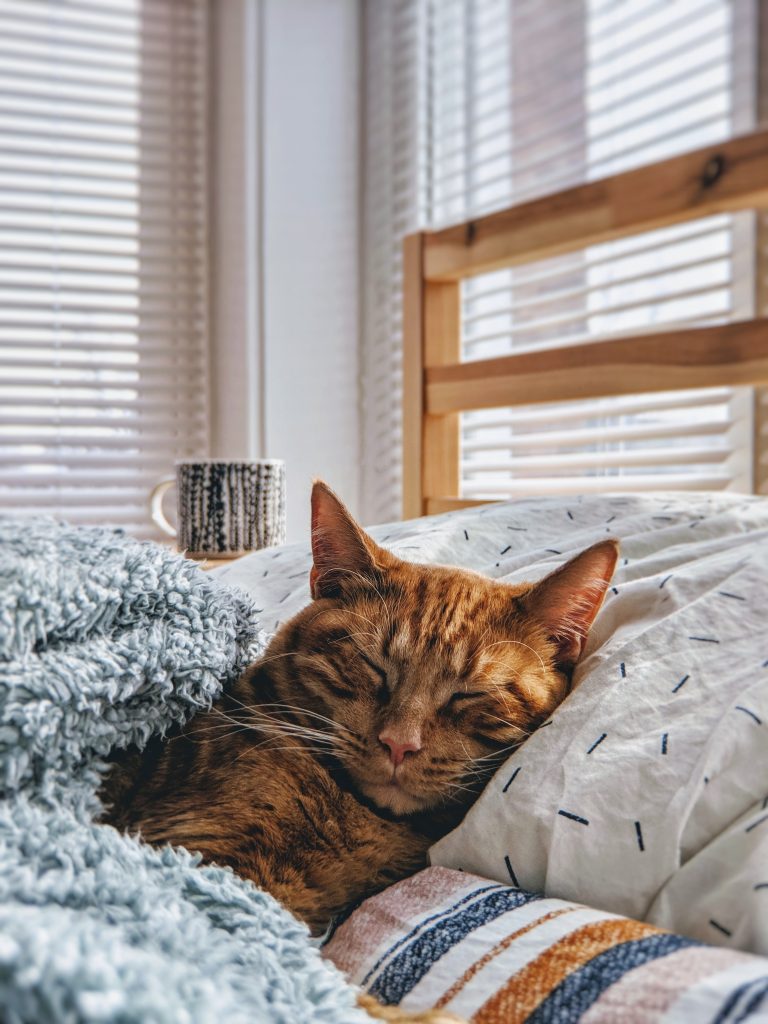By guest blogger, Ryan Goodchild of A Pupper’s Love

Now that the cold weather has arrived, you need to make sure your pet has the essentials to stay healthy and happy all season long. Not sure where to start? Then check out these top health and safety tips for taking care of your furkids.
Find Allergy Relief for Your Pets
Itchy pets may be suffering from allergies. Pet allergies are pretty common for cats and dogs, and can be the result of dust, pollen or even certain foods. All of the scratching can lead to hair loss and infections, so schedule a checkup for your pets if you suspect environmental or food allergies. You can also try switching your kitty to an allergen-free food to see if that helps with symptoms.
Address Your Pet’s Behavior Issues
Winter weather can mean more indoor gatherings with family and friends. If you plan on bringing your pets along you should make sure they have at least some basic manners. This can also be helpful if you want to sip your favorite fall lattes on local dog-friendly patios. If you need help with training your dog, consider reaching out to a local, qualified trainer for a consultation.
Be Aware of Signs of Pain in Your Pet
Colder weather can make your pet extra achy. Arthritis is another common health concern that tends to come in during colder seasons, and aches and pains can be particularly common for senior pets. Lifestyle changes can reduce pain and inflammation for your pet, including keeping your pet active and investing in quality beds.
Pain from inflammation, nausea and vomiting from cats with sensitive stomachs is another thing to look out for. In this case, switch your kitty over to food that is specially produced for such ailments. Ingredients in sensitive stomach cat food — such as prebiotics, highly digestible ingredients, and fatty acids like fish oil — are geared towards soothing cats’ digestive systems.
Make Sure Your Pets are Microchipped
It’s always a good idea to microchip your pet. If your pet gets away from you during a hike, a walk, or a holiday vacation, having a microchip will increase the chances of being reunited with you. This is a relatively simple and inexpensive procedure that can be priceless when it comes to protecting your furry family members.
Protect Your Pet’s Paws and Nose
You know how your lips and hands can get dry and chapped during the winter? Well, the same thing can happen to your pet’s paws and nose. If you notice dry skin or cracks on their skin, consider mixing up a protective balm. You can also add a layer of balm to help safeguard your dog’s paws against salt and other chemicals used to prevent ice on sidewalks.
Protect Your Pet From Holiday Hazards
Finally, before you enjoy any holiday celebrations with your pets, you should be aware of some of the most common holiday pet hazards. Human food may be the first thing that comes to mind, and keeping fatty meats, herbs and other risky treats away from your pets can be crucial for keeping them healthy. But holiday decor, including poinsettias, mistletoe and tinsel, can also present poisoning and choking hazards.
Ensuring a safe and healthy season for your pets is all about preparation and planning. So even if the temperatures are still hot and sticky in your area, start making appointments and stocking up on supplies as soon as possible. Then you can rest assured that your pets are healthy enough to enjoy all the fall fun ahead.
* * * * * * *
Thank you, Ryan, for all the great info. For inspiring stories about man’s best friend, check out Ryan’s website, A Pupper’s Love. For more pet safety tips How To Keep Pets Safe at Home by LA Homes offers advice for every room of the house.
